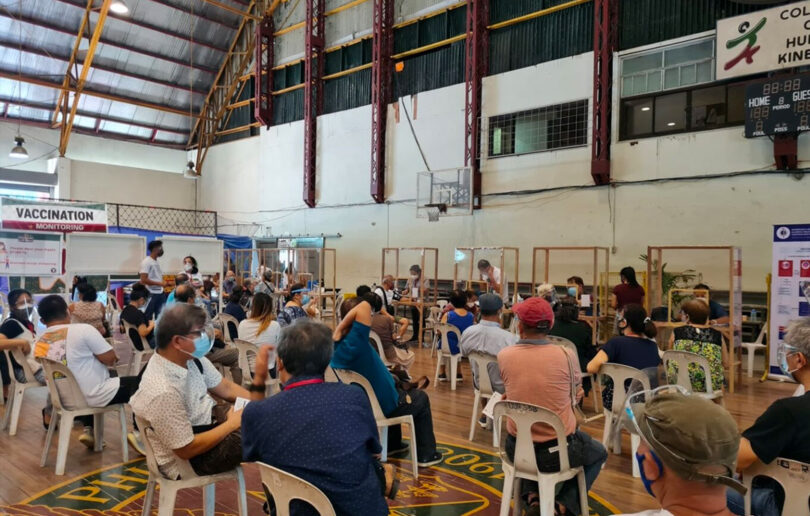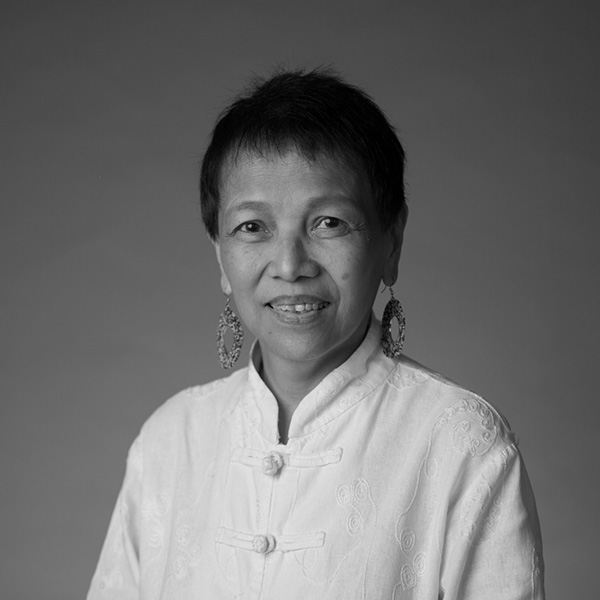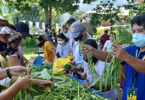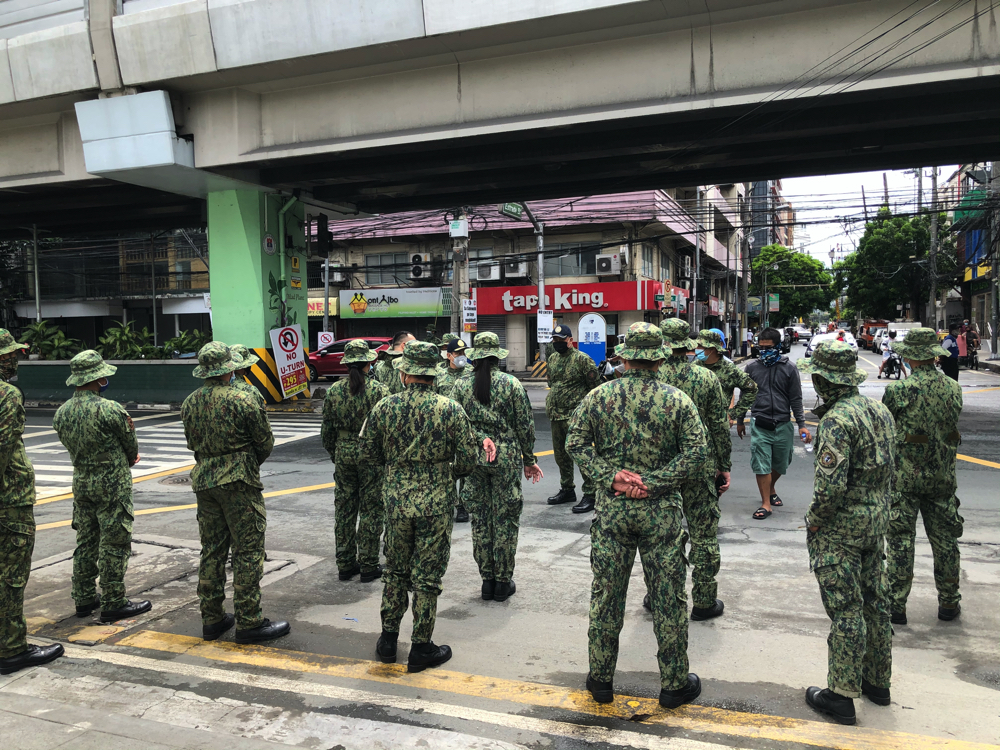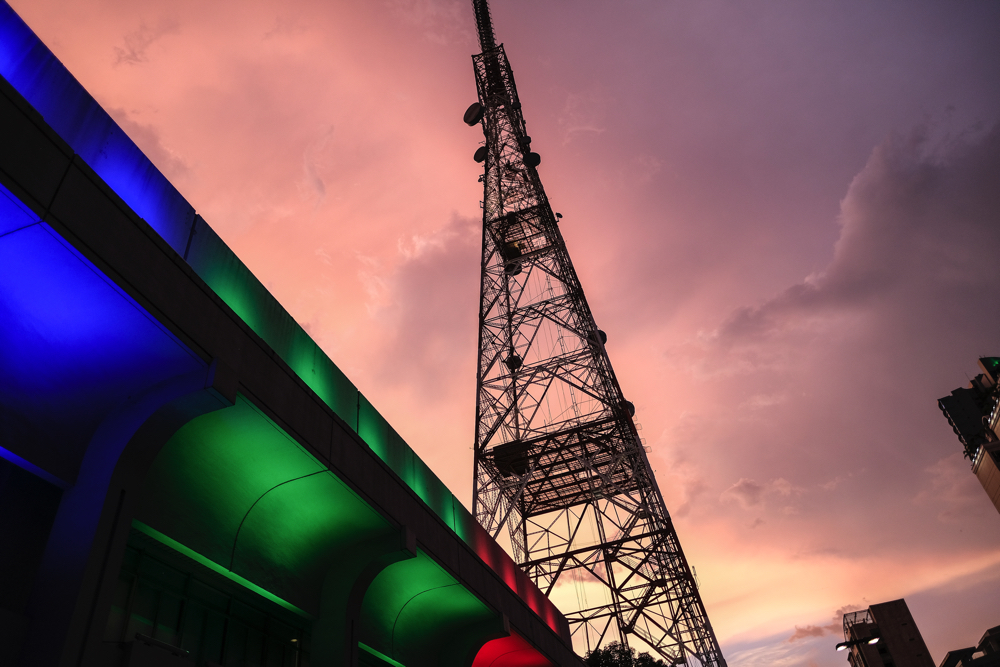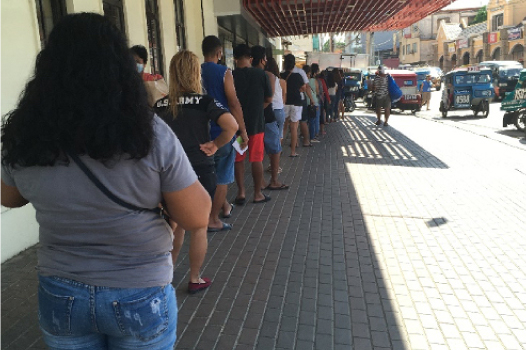A year has passed since the COVID-19 pandemic hit the Philippines and recovery is still nowhere near in sight. The Department of Health (DoH) has noted that the total number of cases has surpassed 1.2 million, in a country of more than a 100 million (DoH, 28 May 2021). In an attempt to contain the further spread of the virus, the government placed Metro Manila under temporarily quarantine last March, reminiscent of the first city lockdown exactly one year ago (CNN Philippines, 12 March, 2021). Many businesses were once again shut down and thousands fell out of work.
Despite the measures imposed by the government to prevent the spread of COVID-19, such as the observance of social distancing and mask-wearing, health experts have stated that there is a need to curb the pandemic through the mass deployment of vaccines. Currently the country has administered 4.5 million vaccines to health workers, senior citizens, and persons with comorbidities using a variety of vaccines ranging from Sinovac, Astrazeneca, Sputnik, and Pfizer (ABS-CBN, 25 May 2021). Through use of a priority list based on needs and vulnerability, indigent people, those who passed a test proving they have no or insufficient income, and uniformed personnel are given priority to be vaccinated (DoH, 2021). The head of the government vaccination program, Carlito Galvez, declared that they will aim to inoculate between 50 to 70 million people by the end of the year by first focusing on highly urbanized centers (ABS-CBN, 18 March 2021).
An ambitious task such as this requires political will from the administration whose technical competence and administrative capacity to stem the rising tide of COVID-19 infections and provide medical support for those who have fallen ill has been called in question by numerous sectors. This article examines how the path towards achieving the much-desired immunity within the Philippines may reinforce certain inequalities and how, in particular, this is manifested in the current vaccination process.
Income inequality exacerbated during the COVID-19 pandemic
The pandemic has clearly exposed the fault lines in the Philippine’s two-tiered healthcare system, where those without means have little choice but to resort to ill-equipped and severely understaffed public hospitals, while those with the financial means enjoy more expensive quality healthcare provided by the private sector. In reality, this impacts on whether persons infected with COVID-19 receive treatment in a modern hospital with fully stocked ventilators or in a poorly equipped health clinic.
Another manifestation of worsening inequality spawned by the pandemic is in the workforce. As with other developing countries where the majority of workers are found in the informal sector, the lockdown saw millions of Filipinos, particularly in the Metro Manila area, trapped in their homes and unable to earn a living and access social security. Of the recorded 21.1 million people (2008-2017) in the informal sector, only 109,000 signed up for the social security insurance program in 2018 (SSS, 11 November 2019). Those in the formal sector, however, were able to transition to a work from home setup and maintain a stable source of income and access to social security.
In 2020, many families languished in poverty and the hunger rate grew to 30.7 percent, a 21.6 increase from 2019 and also the highest record in over 20 years (Social Weather Stations, 27 September 2020; Social Weather Stations, 23 October 2019). The government gave food and cash assistance, like it did in a slum area in Manila where each family received $80- barely enough to cover a few weeks of its necessities (CNN, 25 May 2021). Last month, hundreds of community pantries – or voluntary feeding stations- have sprung up in different neighborhoods and cities to address widespread hunger. The community pantry in my neighborhood bore the sign “give what you can, take only what you need,” (Magbigay ayon sa kakayanan, kumuha batay sa pangangaliangan) attracting a long queue of people from the early hours of the morning.
While some Filipino families would have to rely on bayanihan (community-based cooperation) for their sustenance, it is a different story for the elites. It was reported that all but one in the Forbes 2021 list of seventeen dollar billionaires in the Philippines saw their wealth grow during the pandemic, leading to a total increase of Php 2.2 trillion or roughly half of the national budget in 2021 (Rappler, 7 April 2021) during the pandemic. A report also showed that the salaries and bonuses of top executives of corporations were not only shielded from the devastating effects of the economy but in fact increased. For example, lower-ranking officials of the property and retail shopping giant Ayala saw their salaries dip by 17 percent, while the executives retained their same level of earnings as the previous year (Rappler, 16 April 2021).
Vaccine hesitancy: a real problem
On March 1 2021, the Philippines officially began its vaccination drive with Dr Gerardo Legaspi, Director of Philippine General Hospital, the country’s premiere public hospital, receiving the first jab of the Sinovac Biotech’s vaccine (Nikkei, 1 March 2021). This occasion was long overdue since the Philippines was one of the last to roll out vaccine distribution in Southeast Asia (CNN Philippines, 1 March 2021)
Apart from the serious lack of vaccines for the Filipino population, one important hurdle the country faces is vaccine hesitancy. In a study published by the Lancet, the Philippines, which ranked in the top ten list of countries with highest vaccine confidence levels in 2015, plummeted to 70th rank in 2019 (de Figueiredo, A. et al 2020). Another survey last year also revealed that over 60 percent of Filipinos were unwilling to be vaccinated despite an almost universal concern for being infected with the virus (Reuters, 26 March 2021)
A frequently cited factor contributing to the public’s distrust of vaccines is the ‘Dengvaxia incident,’ in reference to the French-manufactured vaccine Dengvaxia which was deployed by the Philippine government’s anti-dengue program in 2016. It was only after hundreds of children had already been vaccinated that new information came out that the vaccine may be unsafe for those without previous dengue exposure. This consequently led to a public uproar and widespread anxiety among parents and children who had already been given the Dengvaxia shot (Pharmaceutical Technology, 16 Dec 2021). Criminal investigations were conducted and legal cases filed in court. Yet for many, there has was no satisfying conclusion and this episode still lingers on in the public consciousness.
In the age of social media, fake news and misinformation often times spread faster than the truth. Media interviews have cited people believing that vaccines induce blood clots and that herbal remedies such as lemon, ginger, and honey are enough to keep the virus at bay in spite of no empirical data to support these (CNN, 25 May 2021). In Cebu, Governor Gwendolyn Garcia recommended steam inhalation in lieu of conventional medicines for asymptomatic patients (Philippine Daily Inquirer, 24 June 2020) despite evidence against this (Reuters, 13 February 2021).
In mid-May, the DoH introduced a policy where the vaccine brand will be only be disclosed on-site, just before inoculation (CNN, 20 May 2021). This was an effort to discourage brand preferences because in two localities, hordes of people showed up in sites where Pfizer was being offered. (Nikkei, 20 May 2021). As of this writing, this policy is under review as this can be seen as violation of the citizen’s right to informed consent (Philippine Daily Inquirer, 22 May 2021). The preference of Pfizer may be probably due to the following factors: 1) preference to brands made in the West, 2) the vaccine’s high efficacy rates as reported from its clinical studies (New York Times, 25 May 2021), and 3) the distrust in China due to ongoing tensions in the West Philippine Sea. What is clear is that is the government must play a proactive role in vaccine education by mobilizing public and private resources, tapping popular figures and influencers, in order to de-stigmatize vaccines.
A sense of entitlement fueling VIP vaccinations
The success of the nation’s vaccine drive is largely undermined by the scores of illicit vaccinations, including those of government officials who have jumped the prioritization queue. Last December, the Interior Secretary confirmed that some cabinet officials and members of the Presidential Security Group (PSG) were vaccinated with what was reported to be smuggled batches of Sinovac, even before the granting authorization of Emergency Use in the country (Philippine Daily Inquirer, 28 December 2020).
When more vaccine doses arrived, it was not hard for the sense of entitlement of politicians and other ‘highly-connected’ people to surface. This was evident with some of the provincial governments, where the grip of “Imperial Manila” is weaker. As of the end of March it was reported that nine mayors received vaccine shots (Philippine News Agency, 25 March 2021) at a time where only health care front liners were being vaccinated. Vaccine entitlement has also trickled down through the networks of politicians and political patronage. Despite congested job orders and vaccine shortages, some celebrities and citizens with connections received doses, displaying the anarchistic habit of how unequal risks and rewards are distributed.
The cases of vaccine line jumping has gotten so severe that WHO warned the country that they could stand to lose additional vaccine donations and be forced to pay for doses they received (Vice News, 26 March 2021). The Food and Drug Administration (FDA) said they will investigate the unauthorized vaccinations of PSG personnel, but even after five months nothing has been heard about the inquiry (Philippines Daily Inquirer, 6 May 2021).
Some citizens feel that the heavy hand of the state unfairly and harshly falls on the poor and lower income classes for violations of COVID-19 health and social protocols. Residents who are caught violating the most mundane rules are met with draconian punishments, such as when five young people were detained in dog cages after violating curfew hours (Human Rights Watch, 26 March 2021). On the other hand, VIPs go unpunished with, at worst, receiving just a slap on the wrist (Philippine Daily Inquirer, 6 April, 2021)
The private sector has also been a potentially potent force in vaccine procurement, helping the country with its supply. In recent months, the government acquiesced in loosening protocols and standards for private sector procurement of the vaccine such as rescinding import taxes and allowing businesses to buy “at will” (Philippine Daily Inquirer, 31 March 2021) in an effort to speed up vaccine rollout. Right now, those who want to buy vaccines are required to enter into a tripartite agreement with the national government and vaccine manufacturers, for indemnification purposes which protects vaccine manufacturers from suit (CNN Philippines, 31 March 2021)
It is expected that the private sector can use their resources to quickly assist the strained public healthcare system (Philippine Daily Inquirer, 23 May 2021) as they aim to administer 150,000 vaccines per month. A host of corporations and companies are planning to contribute a lot in the vaccination drives. These efforts will include allowing malls to operate as vaccination sites, producing informational material to lessen vaccine hesitancy (Rappler, 14 May 2021), providing vaccines for employees (One News, 15 April 2021), and in some instances donating part of their supply to the government (Business World, 30 April 2021). The first batch of the privately procured Moderna vaccines will arrive in the next quarter (CNN Philippines, 11 May 2021) and no price has been given so it is still to be seen how it is able to assist in the handling of the response without alienating those who cannot afford it.
To date, local government units (LGUs) have been a driving force behind the vaccination drives in the country. While decentralizing the vaccine drive may propel faster distribution, the greater autonomy given to local governments may lead to smaller conflicts that may impede the national goal. While administering vaccines shots at the local level is designed to propel faster distribution, the greater responsibility given to LGUs will have varying results due to unequal administrative capacities and resources.
TRIPS waiver as an attempt to democratize access to the ‘new gold’
As different nations slowly vaccinate their populations, regimes of inequality persist in various spheres. Singapore, Bhutan, and China have all administered more than 20 doses for every 100 people, while the Philippines had just reached 4 (New York Times, 27 May 2021).
Vaccines are the ‘new gold’ in a world ravaged by the pandemic and those countries which manufacture these- mostly from the developed world- enjoy the advantage of emerging from the crisis sooner rather than later. The current trend of vaccine nationalism – a phenomenon where countries are unwilling to share knowledge and material on vaccine use – has resulted in a situation where, as of mid-January 2021, high income countries hold 60 percent of all vaccine purchases despite them only comprising 16 percent of the world’s population (The Guardian, 22 January 2021).
On the other hand, as of February, data shows that only 0.2% of the entire global supply has been given to Africa (University World News, 11 February 2021) and that 130 countries, where around 2.5 billion people live, have had to wait for doses to arrive (World Health Organization, 5 February 2021). India used to be an exception as it produces around 60 percent of global vaccine production (Project Syndicate, 11 March 2021) which it uses to engage in carefully crafted diplomacy. However, the recent surge of cases has forced the country to halt vaccine exports for its own citizens’ use (The Conversation. 7 May 2021).
China has been flexing its industrial might and aggressively pushing its vaccine diplomacy, as it has distributed at least 510 million doses globally (Nature, 12 May 2021). Some may see this as a coordinated response to complement its act of expanding their military capacity in the South China Sea. In the Philippines, this proved effective as President Duterte described the global superpower as the Philippine’s “benefactor” (La Prensa Latina, May 4 2021) merely a few days after the Philippine Foreign Affairs Secretary criticized the presence of Chinese vessels in Philippine waters (CNBC, May 3 2021). Nevertheless, it is hard to separate vaccines from the broader geopolitical context.
One debate that has gained prominence on the international stage is the call of many developing countries for a waiver on intellectual property rules on COVID-19 vaccines imposed by the World Trade Organization- Trade-Related Aspects of Intellectual Property Rights (WTO-TRIPS) (Reuters, 24 March 2021). This is an effort to democratize access of developing countries to vaccines by allowing them greater access to vaccine materials through the temporary suspension of intellectual property rights. Health advocates argue that patents can be counterproductive during a global health pandemic when knowledge sharing is urgently necessary (The Economist, 20 April 2021). Despite the clear moral and practical imperative of this initiative, rich countries like those in Western Europe, Canada and Australia have been blocking this effort in the name of innovation and protecting their own strategic interests (IP Watchdog, 24 March 2021). However, in early May the Biden administration openly expressed support for the waiver, and whether more momentum is gained remains to be seen over the coming days (BBC, 6 May 2021).
The Philippines has been slowly coming forward with support for a waiver as the Finance Secretary Carlos Dominguez has recently expressed support for developing countries to have greater access to vaccines (ADB, 3 May 2021). The previous government stance has been lackluster and the Philippine Ambassador to the WTO has advised “constructive listening” for their part, which NGOs and other IP waiver advocates see as sitting on the fence (A. Nemenzo, personal communication, 28 April, 2021).
Vaccine inequality strikes at the heart of an unjust system, and this has been illustrated at various levels. At the global level, rich countries are hoarding doses while pharmaceutical companies are invoking intellectual property to protect their profits. At a national level, public vaccination efforts are undermined by vaccine hesitancy, which has been fueled by misinformation, the Philippines’ traumatic experience with the Dengvaxia vaccine, and the resistance to the Chinese vaccine Sinovac. Lastly, at the local level, the success of vaccination program will depend on the capacities of local governments to carry them out, which are largely unequal. The economically and politically privileged are also jumping up the prioritization queue, exacerbating existing inequalities.
Vaccines will remain a major concern for some time and the assuring people are vaccinated will be a pressing task fraught with risks. An unravelling can take place through just one broken part of the chain, but it takes a confluence of factors to spell its success. For now, there is no greater test of effective governance than seeing this through.
1 June, 2021
References
- ABS-CBN Investigative and Research Group. 25 May, 2021. Philippines: COVID-19 Vaccine Tracker. ABS-CBN. https://news.abs-cbn.com/spotlight/multimedia/infographic/03/23/21/philippines-covid-19-vaccine-tracker (Accessed 27 May, 2021)
- ADB. 3 May, 2021. 54th ADB Annual Meeting: Governors’ Seminar – Cooperation for a Resilient Future. https://www.adb.org/news/videos/54th-adb-annual-meeting-governors-seminar-cooperation-resilient-future (Accessed 3 May, 2021)
- Andrade, Jeannette I. 6 April, 2021. DILG probes governor, 14 mayors who jumped vaccine line. Philippine Daily Inquirer. https://newsinfo.inquirer.net/1415209/dilg-probes-governor-14-mayors-who-jumped-the-line (Accessed 28 April, 2021)
- BBC. 6 May, 2021. Covid: US backs waiver on vaccine patents to boost supply. https://www.bbc.com/news/world-us-canada-57004302 (Accessed 7 May, 2021)
- Cabalza, Dexter, and Salaverria, Leila. 23 May, 2021. DOH counts on private sector to speed up vaccine rollout. Philippine Daily Inquirer. https://newsinfo.inquirer.net/1435367/doh-counts-on-private-sector-to-speed-up-vaccine-rollout (Accessed 25 May, 2021
- Chiu, Patricia Denise M. 6 May, 2021. PSG uncooperative in probe over COVID-19 vaccination – FDA. Philippines Daily Inquirer. https://newsinfo.inquirer.net/1427893/fda-psg-uncooperative-in-probe (Accessed 12 May, 2021)
- CNN Philippines. 12 March, 2021. Metro Manila to be placed on ‘lockdown’ due to COVID-19. https://cnnphilippines.com/news/2020/3/12/COVID-19-Metro-Manila-restrictions-Philippines.html (Accessed 3 April, 2021)
- CNN Philippines. 11 May, 2021. Private sector expects first batch of Moderna vaccines by ‘week of June 21’. https://cnnphilippines.com/news/2021/5/11/Private-sector-Moderna-vaccine-to-arrive-week-of-June-21.html (Accessed 27 May, 2021)
- CNN Philippines. 20 May, 2021. DOH to enforce ‘brand agnistoc’ policy to prevent overcrowding in vaccination sites. https://cnnphilippines.com/news/2021/5/19/DOH-brand-agnostic-policy.html (Accessed 26 May, 2021)
- Cortez, Gillian M., and Ibanez, Jenina P. 30 April, 2021. Private sector to donate vaccines to gov’t if COVAX supplies delayed. BusinessWorld. https://www.bworldonline.com/private-sector-to-donate-vaccines-to-govt-if-covax-supplies-delayed/ (Accessed 27 May, 2021)
- de Figueiredo, Alexandre., Simas, Clarissa., Karafillakis, Emilie., Paterson, Pauline. and Larson, Heidi J. 2020. Mapping global trends in vaccine confidence and investigating barriers to vaccine uptake: a large-scale retrospective temporal modelling study. The Lancet, [online] 396(10255), pp.898-908. https://www.thelancet.com/journals/lancet/article/PIIS0140-6736(20)31558-0/fulltext (Accessed 31 January 2021).
- Department of Health, Philippines. COVID-19 Tracker. https://doh.gov.p/ch/covid-19ase-tracker (Accessed 28 May, 2021)
- Department of Health, Philippines. FAQS: Vaccines. https://doh.gov.ph/faqs/vaccines. (Accessed 3 April, 2021)
- Embudo, Franz Lewin. 15 April, 2021. LIST: Some of the Private Companies That Have Committed To Vaccinate Employees For Free. One News. https://www.onenews.ph/list-some-of-the-private-companies-that-have-committed-to-vaccinate-employees-for-free (Accessed 27 May, 2021)
- Esguerra, Anthony. 26 March, 2021. Vaccine Line-Jumping in the Philippines Is Getting So Bad That WHO Might Punish the Country for It. Vice News. https://www.vice.com/en/article/dy8njq/vaccine-line-jumping-is-so-bad-in-the-philippines-that-who-could-punish-it. (Accessed 3 April, 2021)
- Galvez, Daphne. 28 December, 2020. Some Cabinet, PSG members have received COVID-19 vaccine, Año confirms. Philippine Daily Inquirer. https://newsinfo.inquirer.net/1376853/fwd-ano-some-cabinet-members-psg-got-inoculated-with-COVID-19-vaccine (Accessed 30 January, 2021)
- Ghebreyesus, Tedros. 5 February, 2021. WHO Director-General’s opening remarks at the media briefing on COVID-19 – 5 February 2021. World Health Organization. https://www.who.int/director-general/speeches/detail/who-director-general-s-opening-remarks-at-the-media-briefing-on-COVID-19-5-february-2021 (Accessed 6 March, 2021)
- Gita-Carlos, Ruth Abbey. 25 March, 2021. Stop skipping COVID-19 vaccine line, Palace tells mayors. Philippine News Agency. https://www.pna.gov.ph/articles/1134899 (Accessed 14 April, 2021)
- Holder, Josh. Last Updated 27 May, 2021. Tracking Coronavirus Vaccinations Around the World. New York Times. https://www.nytimes.com/interactive/2021/world/covid-vaccinations-tracker.html. (Accessed 28 May, 2021)
- Human Rights Watch. 26 March, 2021. Philippines: Curfew Violators Abused. https://www.hrw.org/news/2020/03/26/philippines-curfew-violators-abused (Accessed 10 April, 2021)
- La Prensa Latina. 4 May, 2021. Philippines’ Duterte calls China ‘benefactor’ despite territorial dispute. https://www.laprensalatina.com/philippines-duterte-calls-china-benefactor-despite-territorial-dispute/ (Accessed 25 May, 2021)
- Lalu, Gabriel Pabico. 22 May, 2021. ‘Brand agnostic’ COVID-19 vaccine policy must respect human rights — CHR. Philippine Daily Inquirer. https://newsinfo.inquirer.net/1435230/brand-agnostic-covid-19-vaccine-policy-must-respect-human-rights-chr (Accessed 26 May, 2021)
- Lee, Yen Nee. 3 May, 2021. Philippine foreign secretary direcs unusually aggressive tweet at Beijing over South China Sea. CNBC. https://www.cnbc.com/2021/05/03/philippine-foreign-secretary-locsin-slams-beijing-over-south-china-sea.html (Accessed 25 May, 2021)
- Lo, Chris. 16 December, 2019. Analysis: The dengue vaccine dilemma. Pharmaceutical Technology. https://www.pharmaceutical-technology.com/features/dangvaxia-philippines/ (Accessed 3 May, 2021)
- Lopez, Melissa Luz. 31 March, 2021. Tripartite deal the only option for businesses to buy vaccines – Concepcion. CNN Philippines. https://cnnphilippines.com/news/2021/3/31/no-changes-tripartite-deal-private-sector-vaccine-imports.html (Accessed 25 April, 2021)
- Mallapaty, Smriti. Updated 12 May, 2021. China’s COIVD vaccines are going global-but questions remain. Nature. https://www.nature.com/articles/d41586-021-01146-0 (Accessed 25 May, 2021)
- Mazzucato, Mariana; Ghosh, Jayati, and Torreele, Els. 20 April, 2021. Mariana Mazzucato, Jayati Ghosh and Els Torreele on waiving covid patents. The Economist. https://www.economist.com/by-invitation/2021/04/20/mariana-mazzucato-jayati-ghosh-and-els-torreele-on-waiving-covid-patents (Accessed 4 May, 2021)
- Mayol, Ador Vincent. 24 June, 2020. Provincial gov’t memo: Make time for ‘tuob’. Philippine Daily Inquirer. https://newsinfo.inquirer.net/1296441/provincial-govt-memo-make-time-for-tuob (Accessed 28 May. 2021)
- Moodley, Keymanthri, and Rossouw, Theresa. 11 February, 2021. SA COVID-19 vaccine trials: Lessons for the future. University World News: Africa Edition. https://www.universityworldnews.com/post.php?story=2021021015293223 (Accessed 6 March, 2021)
- Morales, Neil Jerome. 26 March, 2021. Philippines marks daily record for COVID-19 cases, as vaccine hesitancy grows. Reuters. https://www.reuters.com/article/us-health-coronavirus-philippines-cases-idUSKBN2BI10Q. (Accessed 4 April, 2021)
- Nebehay, Stephanie. 24 March, 2021. Top U.N. rights body calls for fair, affordable access to COVID-19 vaccines. Reuters. https://www.reuters.com/article/us-health-coronavirus-un-rights/top-u-n-rights-body-calls-for-fair-affordable-access-to-COVID-19-vaccines-idUSKBN2BF29B (Accessed 10 April, 2021)
- Reuters. 13 February, 2021. Fact check: Inhaling steam is not proven to prevent COVID-19. https://www.reuters.com/article/uk-factcheck-steam-idUSKBN2AC2FV (Accessed 26 May, 2021)
- Rivas, Ralf. 7 April, 2021. Filipino billionaires grow wealth despite pandemic. Rappler. https://www.rappler.com/business/filipino-billionaires-grow-wealth-coronavirus-pandemic-forbes-list-2021 (Accessed 15 April, 2021)
- Rivas, Ralf. 16 April, 2021. Filipino billionaires swim in bonuses as pandemic crushes economy. Rappler.
https://www.rappler.com/business/filipino-billionaires-bonuses-salaries-COVID-19-pandemic-2020-2021 (Accessed 16 April, 2021) - Ropero, Gillian. 18 March, 2021. PH seeks ‘steady supply’ of COVID-19 vaccines for ‘better Christmas’. ABS-CBN. https://news.abs-cbn.com/news/03/18/21/ph-seeks-steady-supply-of-COVID-19-vaccines-for-better-christmas. (Accessed 21 March, 2021)
- Social Security System. 11 November, 2019. SSS to intensify programs to reach out to the informal sector for universal protection. https://www.sss.gov.ph/sss/appmanager/viewArticle.jsp?page=NR2019_059 (Accessed 27 May, 2021)
- Social Weather Stations. 7 September, 2020. SWS September 17-20, 2020 National Mobile Phone Survey – Report No. 2: Hunger at new record-high 30.7% of families. https://www.sws.org.ph/swsmain/artcldisppage/?artcsyscode=ART-20200927135430 (Accessed 28 May, 2021)
- Social Weather Stations. 23 October, 2019. Third Quarter 2019 Social Weather Survey: Total Hunger subsides to 9.1%. https://www.sws.org.ph/swsmain/artcldisppage/?artcsyscode=ART-20191023200051 (Accessed 28 May, 2021)
- Salaverria, Leila B. 31 March, 2021. What Duterte meant when he said companies could buy vaccines ‘at will’. Philippine Daily Inquirer. https://newsinfo.inquirer.net/1413192/what-duterte-meant-when-he-said-companies-could-buy-jabs-at-will (Accessed 25 April, 2021)
- Tan, Lara. 1 March, 2021. PH rolls out COVID-19 vaccine drive with frontliners, gov’t officials taking first shots. CNN Philippines. https://cnnphilippines.com/news/2021/3/1/COVID-19-vaccination-Philippines-PGH.html (Accessed 28 May, 2021)
- Tharoor, Shashi. 11 March, 2021. India’s Smart Vaccine Diplomacy. Project Syndicate. https://www.project-syndicate.org/commentary/india-covid19-vaccine-diplomacy-by-shashi-tharoor-2021-03?barrier=accesspaylog (Accessed 4 April, 2021)
- The Conversation. 7 May, 2021. What India’s second wave means for its vaccine coverage – and the rest of the world. https://theconversation.com/what-indias-second-wave-means-for-its-vaccine-coverage-and-the-rest-of-the-world-159937 (Accessed 9 May, 2021)
- Thrasher, Rachel. 24 March, 2021. Why Innovation Would Survive a COVID-19 TRIPS Waiver. IP Watchdog. https://www.ipwatchdog.com/2021/03/24/innovation-survive-COVID-19-trips-waiver/id=131194/ (Accessed 4 May, 2021)
- Tomacruz, Sofia. 14 May, 2021. Private Sector targets 150,000 vaccinations within 30 days. Rappler. https://www.rappler.com/business/private-sector-sets-target-covid-19-vaccinations (Accessed 25 May, 2021)
- Venzon, Cliff. 1 March, 2021. Philippines starts COVID vaccinations, courtesy of China. Nikkei Asia. https://asia.nikkei.com/Spotlight/Coronavirus/Philippines-starts-COVID-vaccinations-courtesy-of-China (Accessed 3 April, 2021)
- Venzon, Cliff. 20 May 2021. Philippine fights vaccine bias in face of Pfizer preference. Nikkei asia. https://asia.nikkei.com/Spotlight/Coronavirus/COVID-vaccines/Philippines-fights-vaccine-bias-in-face-of-Pfizer-preference (Accessed 26 May, 2021)
- Wintour, Patrick. 22 January, 2021. World’s poor need action, not Covid ‘vaccine nationalism’, say experts. The Guardian. https://www.theguardian.com/world/2021/jan/22/worlds-poor-need-action-not-covid-vaccine-nationalism-say-experts (Accessed 6 March, 2021)
- Wright, Rebecca, and Coles, Yasmin. 25 May, 2021. Covid made the Philippine’s hunger crisis worse. So why does hardly anyone want a vaccine? CNN. https://edition.cnn.com/2021/05/24/asia/philippines-covid-hunger-intl-hnk-dst/index.html (Accessed 26 May, 2021)
- Zimmer, Carl; Corum, Jonathan; and Wee, Sul-Lee. 25 May, 2021. Coronavirus Vaccine Tracker. The New York Times. https://www.nytimes.com/interactive/2020/science/coronavirus-vaccine-tracker.html#pfizer (Accessed 26 May 2021)
Julio Anton Mulawin R. Nemenzo is currently an energy researcher for the Asian Peoples Movement on Debt and Development based in the Philippines, an environmental NGO which advocates for ending fossil fuels and supporting a clean energy transition. He previously also worked as an economics researcher for an academic project on off-grid renewable energy projects. He graduated last year with a degree of BS Economics from the School of Economics in the University of the Philippines Diliman. He currently spends his time reading, running, and volunteering in youth organizations.
Header IMG: A vaccination site at a university gym (May 26 2021, Author’s photo)
Citation
Julio Anton Mulawin R. Nemenzo. 2021. “Vaccine inequality in the Philippines:How the pandemic and vaccination schemes have exacerbated inequality ” CSEAS NEWSLETTER, 78: TBC.

